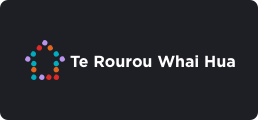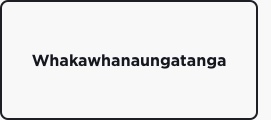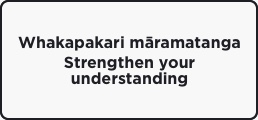1. Support your mahi (Whakawhanaungatanga)

|
The resources in this section could be used in your role as an LSC to support teams in thinking about their approach to engagement with whānau and other people working together in your education community. |
|
|
When schools find out about, acknowledge and utilise families’ community knowledge and practices, it can help to minimise the challenges in developing effective partnerships where there are differences between the home and school environments. - The Education Hub |
|
Planning for diversityThis grid may help you plan for diversity in engagement. Ask yourself: ‘what will make people feel welcome and what could create barriers?' Read more on The Education Hub about tips and suggestions for improving partnership with culturally diverse families. When schools value and reflect the diversity in their community, the barriers to engaging parents and whānau are reduced or minimised. Download this PDF to use as part of a school wide self review, PLD conversation starters or a checklist for planning with teams. eCALD - Culturally and Linguistically Diverse includes information on how to develop cultural awareness, knowledge and sensitivity about a range of cultural backgrounds. It also includes guidance on how to work effectively with interpreters. |
|
|
This cultural diversity spotlight explores the NZC cultural diversity principle, helping you affirm ākonga cultural identities and incorporate their cultural contexts into teaching and learning programmes. Find short videos, group activities, and opportunities for personal reflection. |
|
|
Engagement works well when relationships between parents and the people at the school are developed and nurtured in ways that respect diversity. Parents appreciate regular communication that is both formal and informal. They like positive feedback about their child but they also want to know sooner rather than later if there are concerns about learning or well-being. Home-school partnerships are strengthened when parents have opportunities to share in their child's successes and to help their child with learning activities at home. - ERO |
|
Building learning partnershipsInformation sharing and building partnerships is about developing three-way genuine relationships that focus on learning and progress. They’re the kinds of relationships where you know you are working together on something that is really important – the learning and wellbeing of ākonga. This guide contains review questions, activities, examples, and resources to enable deep discussions in your education setting about information sharing and learning partnerships. You could use this guide to:
|
|
Sharing information and consent protocolsThe following principles can guide the decision making you and your learning support teams make about information gathering and sharing. They can be a great starting point for a conversation as you come together as a team and develop shared understandings and ways of working. Click on the image to see in full. Protocol templates may support you to work with your teams about sharing personal information and sharing aggregate information. This checklist is a helpful reminder about seeking agreement about sharing personal information. You can download a full guide to support groups sharing learning support information. |
|
Who is in your learning support community? |
|
|
In your local community there will an agreed person from the Ministry who acts as a facilitator, supporting and promoting joint decision-making and planning. This function brings the right people together, and connects the community to all available supports and services in the area. Using the knowledge of local needs and resources, everyone involved can collaborate to respond to identified needs, based on what is best for ākonga. |
|
|
Read about the types of services available to ākonga, whānau and kaiako as part of Learning Support. Get to know your local Ministry of Education specialist supports by contacting your local Ministry office. Find out about the Resource Teacher Learning and Behaviour Service in your area. Learn about the other Specialist Resource Teachers who provide services to kaiako and ākonga with learning support needs. Social Workers in Schools (SWiS) supports selected primary, intermediate and Kura Kaupapa Māori; working primarily with children in years one to eight (ages 5 -12) within these schools. The intention of this service is to provide supports early to ākonga whose social or family experiences may be impacting on their presence, participation and progress in education. Determining who will be part of your learning support community team will require a lot of discussion. These are some other people and services you may connect with. Of particular interest to your role could be Strengthening Families. This is a model for interagency service coordination that is based on developing whānau strengths. It is designed to bring together the range of supports and services involved with a whānau. It facilitates a coordinated, coherent and holistic response to supporting whānau and their tamariki. |
|
|
Reflective Questions:
|
|
|
To access resources and links to 'strengthen your understanding' in whakawhanaungatanga click on the tab below. |
|



